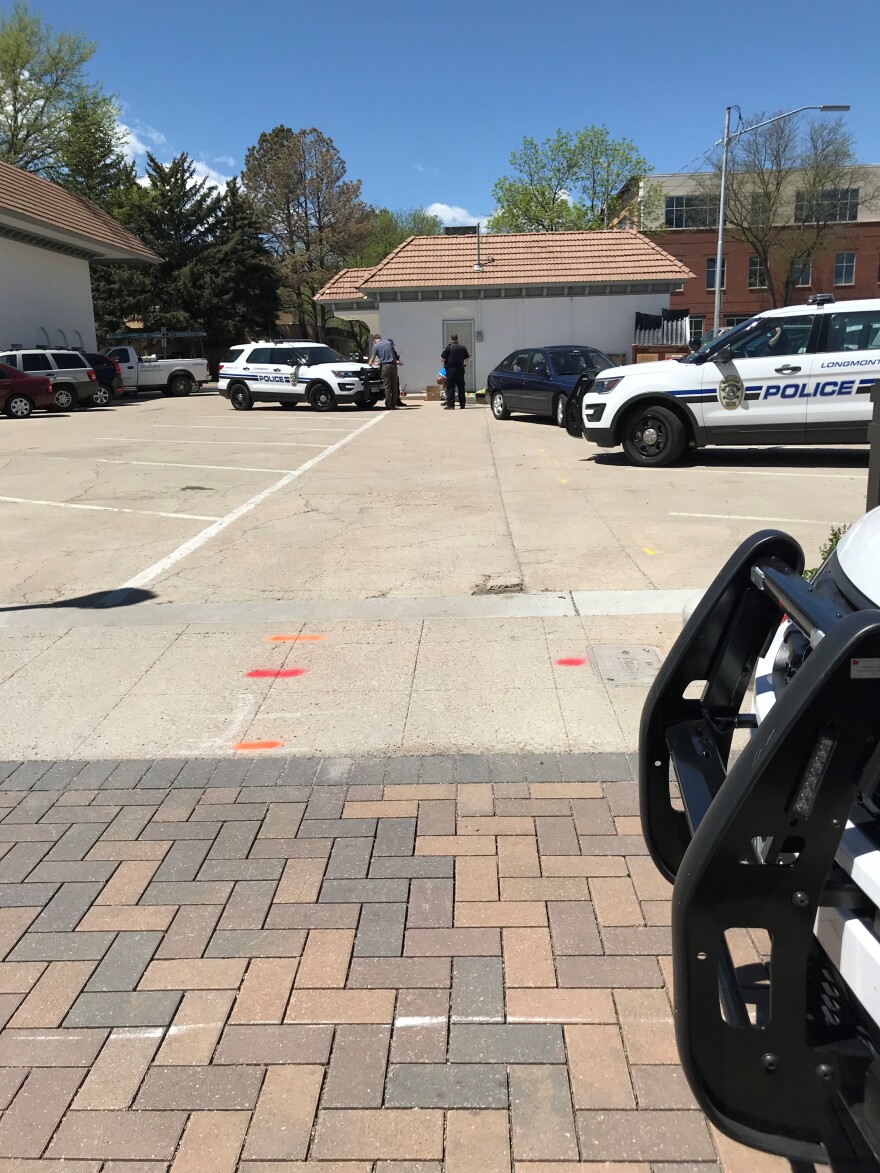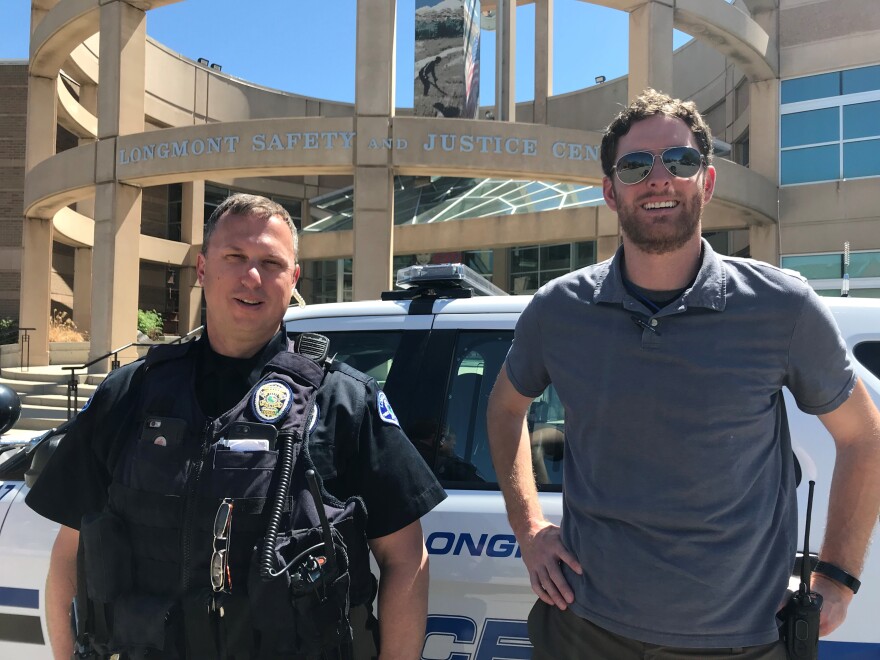Police officer Tash Petsas and clinician Alan Marschke patrol the streets of Longmont, waiting for another call from dispatch about a guy named John. They have already responded to two John calls, but he was not arrested because he wasn't doing anything illegal. John was just hanging around downtown acting erratic.
After their last interaction, John left the scene, leaving his possessions near a dumpster in a parking lot.
"These are those tough cases where Alan and I have conversations," said Petsas, a 15-year veteran with the police department. "You know, right now he's littering with that mess he left. But write him a ticket, it's not going to solve the problem. This is where we have to start getting creative, about how are we going to get him engaged and how are we going to get him help."
'Different philosophy and mindset'
Petsas and Marschke are part of a new unit in Longmont's Public Safety Department - the Crisis Outreach Response and Engagement team. CORE consists of a police officer, a licensed behavioral health clinician and a paramedic. The program, which started in April, currently has two units. One is available every day from 10 a.m. to 8 p.m.

CORE is less than two months old and the paramedics haven't been hired yet. Right now, the teams are just the police officers and clinicians - like Petsas and Marschke. They respond to behavioral health or substance abuse calls.
The goal is to connect people to services like drug treatment or inpatient therapy instead of taking them to jail or the emergency room.
"What we have are public health issues and we're sending, time and time again, police officers who don't necessarily have the tools to deal with that issue," said Dan Eamon, the manager of Longmont's Office of Emergency Management. "We're really trying to use this different philosophy and mindset to get a different outcome."
The CORE program also includes peer support specialists and case managers who follow up with people after their initial interactions with the team. This allows public safety to keep track of these individuals and meet with them as many times as needed.
"It's amazing what happens when you show somebody that you care and just treat a human being like a human being," said Eamon. "That's some of the feedback that we've gotten from our patients already is just, 'It's amazing that somebody cared.'"
'Jails are really not the place these individuals need to be'
CORE is funded through two new, grant-funded programs - Law Enforcement Assisted Diversion (LEAD) and Co-Responder. The Colorado Department of Human Services, in partnership with its Office of Behavioral Health, awarded the grants to 12 communities including the City of Longmont and Denver County, which were the only two applicants to receive both.
The new initiatives provide law enforcement agencies with additional tools to de-escalate situations that involve mental health or substance use disorders, get people the services they need and reduce the cycle of recidivism.
LEAD is a pre-booking diversion program that equips officers with the tools to route individuals with low-level drug and prostitution offenses to case managers and services instead of the criminal justice system. The case managers can connect them to resources and services like housing, substance use treatment or vocational training.
Four communities were awarded the grant and will receive up to $575,000 per year - funded through the Long Bill from the Marijuana Tax Cash Fund - to operate LEAD as a pilot program for three years.
"That's some of the feedback that we've gotten from our patients already is just, 'It's amazing that somebody cared.'"
The Co-Responder model of criminal justice diversion, developed in Los Angeles and San Diego, partners law enforcement officers with behavioral health specialists to intervene on mental health related calls. The teams will work to de-escalate situations by diverting people in crisis for immediate behavioral health assessments.
Eight communities were award grants of up to $362,500 a year - also funded through the Marijuana Tax Cash Fund as well as Senate Bill 207.
According to the state, jails report that 35 to 40 percent of their populations have mental health or substance use disorders. Jagruti Shah, director of criminal justice services at the Colorado Department of Human Services' Office of Behavioral Health, oversaw the application process for both grants. She said these programs are needed because some inmates get involved in the criminal justice system because of low-level crimes, such as trespassing or bizarre behavior.
"Jails are really not the place that these individuals need to be," Shah said. "We really hope that these programs will make a positive impact in reducing the number of people getting involved in the criminal justice system."
'Primary' Response
CORE isn't a totally new program. It's an evolution of a program where a police officer would respond to a scene and then, if necessary, request a behavioral health clinician. This approached is referred to as a 'secondary' response.
But CORE gives three professionals - the officer, clinician and paramedic - the opportunity to work together as a 'primary' response.
Marschke, who has worked with the police department in a secondary response role for four years, was hired in March to be the supervising clinician for the LEAD and Co-Responder programs. He and Petsas work together as a team.
"He's (Pestas's) going to take care of any criminal components. So I can trust him to do that," said Marschke. "He trusts me to de-escalate. Also build rapport and take care of any of the psychological, mental health, substance abuse needs that might be better served with other systems."
Longmont Public Safety plans to hire the two paramedics by July. Since the program is new, there is no data on its success.
But since April, the Longmont CORE teams have become some of the busiest units in the city. They respond to six or seven mental health or substance use disorder calls every day.







